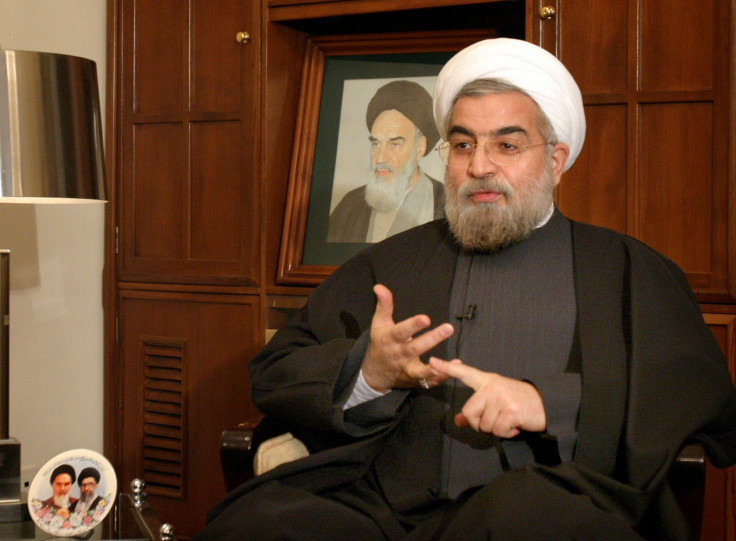Crime Committed Against Jews By Nazis ‘Reprehensible,’ Iran’s President Hassan Rouhani Says About The Holocaust; Or Did He?

Iranian President Hassan Rouhani on Wednesday appeared to end Iran’s policy of denying the Holocaust ever took place, when he described the crimes committed against Jews by the Nazis as “reprehensible,” although his landmark statement was subjected to myriad interpretations and reactions, especially in Israel and Iran.
In an interview with CNN, which followed Rouhani's largely conciliatory address to the United Nations General Assembly on Tuesday, Rouhani distanced himself from the hardline policies of his predecessor, Mahmoud Ahmadinejad, who had maintained a belligerent stand against Israel for the past eight years, and upheld a referendum as the best option to settle the territorial dispute between Israel and Palestine.
“I have said before that I am not a historian personally and that when it comes to speaking of the dimensions of the Holocaust as such, it is the historians that should reflect on it,” Rouhani told CNN. “But in general, I can tell you that any crime or - that happens in history against humanity, including the crime that the Nazis committed towards the Jews, as well as non-Jewish people, is reprehensible and condemnable, as far as we are concerned.”
“So if the Nazis, however criminal they were, we condemn them, whatever criminality they committed against the Jews, we condemn, because genocide, the taking of the human life, is condemnable and it makes no difference whether that life is a Jewish life, a Christian or a Muslim or what,” Rouhani said during the interview.
“But this does not mean that, on the other hand, you can say, well, the Nazis committed crimes against, you know, a certain group, now, therefore, they must usurp the land of another group and occupy it. This, too, is an act that should be condemned, in our view,” Rouhani said, referring to Israel’s dispute, which began in 1948, with the Palestinians and its Arab neighbors over possession of land considered holy by Jews, as well as Christians and Muslims.
However, Israeli media remained unconvinced, saying Rouhani refrained from acknowledging the historical accuracy of the Holocaust.
“Rouhani might still be considered a Holocaust-denier, albeit a much smoother one than Ahmadinejad. The debate, one way or another, will surely continue,” a report published by Israeli newspaper Haaretz said.
Iran’s semi-official Fars news agency accused CNN of fabricating Rouhani’s remarks about the Holocaust, saying the President, who spoke in Farsi, did not use the word Holocaust, and added that the line, “Whatever criminality they committed against the Jews, we condemn,” in CNN’s English translation, “totally” altered what Rouhani had said.
When asked whether Iran had a policy to threaten Israel with destruction, Rouhani told CNN: “You are aware that not only in these past 35 years, but in the past 200 years or so, Iran has never attacked another country. We have no intention of attacking any country or getting into a war with any country.”
“Even if our armed forces are built up, it is for defense purposes alone. You are fully aware that there was an eight year war between Iran and Iraq during which Saddam Hussein attacked us and we were forced to defend ourself,” Rouhani said.
Addressing the issue of Palestine, Rouhani said people should be given the choice to settle the dispute through a public vote, and added that Iran believed Palestinians who have been displaced “must have an opportunity to come and live where they like, alongside other people there.”
Responding to Rouhani’s remarks about the Holocaust, the Anti-Defamation League, or ADL, a civil rights group which fights anti-Semitism, said “it is about time” an Iranian leader acknowledged the Holocaust.
“But in practically the same breath President Rouhani engaged in the more subtle form of Holocaust revisionism, minimizing it by accusing the Jewish survivors of taking vengeance on the Palestinians in fulfilling their 2,000-year-old dream of returning to their homeland, Israel. This was a gratuitous swipe at the survivors,” Abraham Foxman, ADL’s national director and a Holocaust survivor, said in a statement.
© Copyright IBTimes 2024. All rights reserved.












